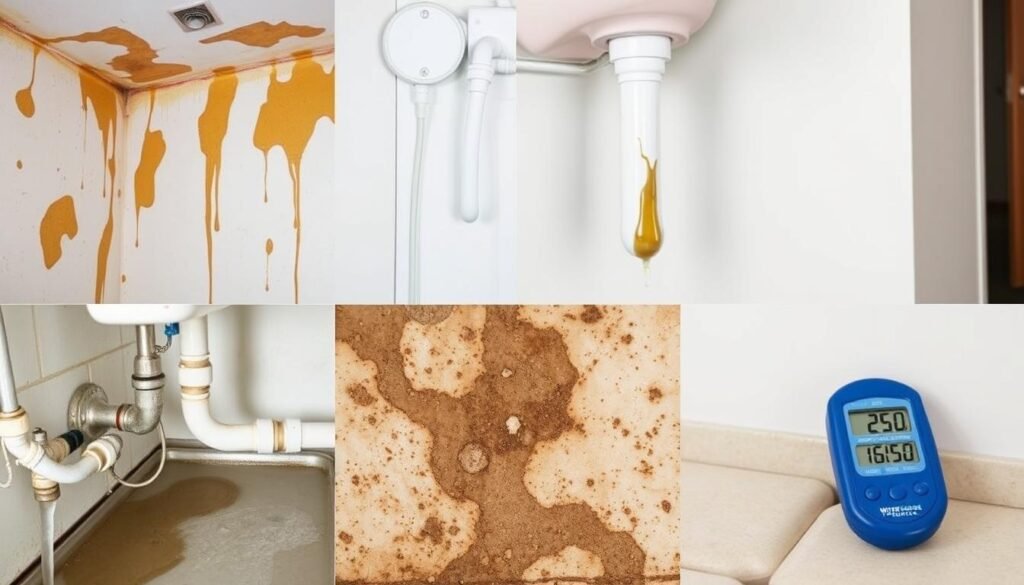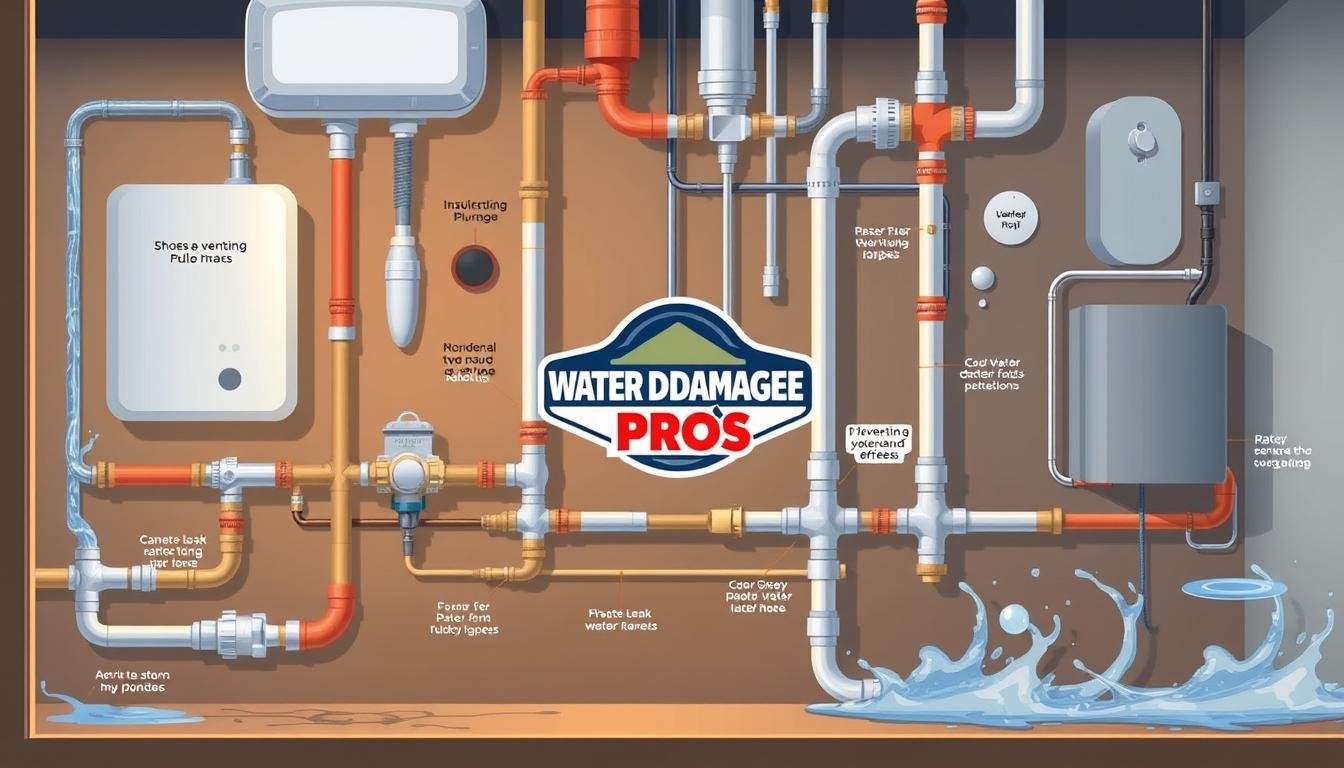Water damage claims make up 24% of all property insurance claims in the U.S., and plumbing issues are a big reason1. Keeping your home safe from water leaks and damage is very important. In this guide, we’ll show you how to protect your plumbing and avoid expensive problems.
Key Takeaways
- Household water leaks can waste water and increase your bills if not fixed2.
- Regular checks can stop small leaks from getting worse, saving you money and avoiding big damage3.
- Watching your water bills can spot hidden leaks. A sudden increase might mean there’s a leak3.
- Insulating pipes is key, especially in cold areas, to stop them from freezing and bursting3.
- Keeping your water heater in good shape can prevent leaks and make it last longer3.
Identifying and Preventing Plumbing Leaks
Keeping your home safe from water damage starts with spotting early signs of plumbing problems. Over time, pipes can corrode, especially if they’re made of older materials like galvanized steel or iron4. High water pressure and extreme temperature changes can also cause pipes to crack and leak4.
Signs of Broken Water Supply Pipes
Lower water pressure is a key sign of a problem with your water supply pipes. You might also hear running water behind walls or see water stains4. Clogs from debris, grease, and mineral deposits can also disrupt water flow and lead to leaks4. Leaks often occur at poorly sealed or corroded pipe joints and fittings4.
Signs of Potential Water Heater Tank Failures
Look out for rust, strange noises, and the age of your water heater for signs of potential tank failures4. Regular checks for leaks can help catch problems early4. Keeping water pressure in check can also reduce the risk of leaks4.
By acting quickly on these signs, homeowners can protect their plumbing and avoid expensive water damage56.
| Leak Causes | Impact | Prevention Strategies |
|---|---|---|
| Pipe corrosion, high water pressure, temperature fluctuations, debris buildup, poor seals | Lower water pressure, water stains, pipe clogs, leaks, potential for water damage | Regular inspections, pressure regulation, pipe insulation, proper waste disposal, professional maintenance |

Protecting your home from plumbing leaks requires constant vigilance and proactive steps. Knowing the common signs and taking preventive actions can help keep your property safe and avoid the high costs of water damage56.
protect plumbing system leaks: Essential Tips for Prevention
Keeping your plumbing system in good shape is key to avoiding expensive water damage and repairs. By taking a few simple steps, you can protect your home and keep your plumbing working well for many years7.
First, make sure to have your plumbing checked regularly. This helps experts find problems early, like worn-out pipes or broken water heaters. Also, know where your main water shut-off valve is. This way, you can quickly stop the water flow if there’s an emergency8.
- Check exposed pipes and hoses often for damage, like cracks or leaks. Fix any problems right away to avoid water damage7.
- Think carefully about what you put down your drains. Don’t pour grease, oil, or food waste, as they can cause clogs and leaks8.
- Think about using protective devices, like Oatey Pipe Guard sleeves, Foam Closet Spacers, or Liquilock Water Absorbing Crystals. They help protect your plumbing during big projects7.
- Use tools like Cherne Gripper Plugs, Test-Kap caps, and pipe wrap tapes to keep debris out and stop corrosion7.
- In cold areas, use heat tape to keep pipes from freezing and bursting. Also, use stud guards to avoid damaging water lines7.
- Use Oatey Bath Tub Protectors during construction to prevent scratches or dents on your bath tub7.
By following these important tips, you can actively protect your plumbing system. This reduces the chance of leaks and water damage. It also keeps your home’s plumbing healthy for a long time8.
“Protecting your plumbing system is a smart investment that can save you from costly repairs and headaches down the road.”
Conclusion
Protecting your plumbing system from leaks and water damage is very important for homeowners. Knowing why leaks happen, like corrosion or too much water pressure9, helps a lot. Also, watching for signs like higher water bills or musty smells10 lets you act fast.
Following the tips in this article can save you from big problems. Regular checks, using a pressure regulator, and getting help when needed9 are key. Being quick to fix small issues keeps your plumbing working well and your home safe.
Using the tips from this article helps you manage your plumbing system. Regular checks and watching for problems prevent damage. This keeps your home safe and your investment secure for a long time.
FAQ
What are the common signs of broken water supply pipes?
How can I tell if my water heater tank is about to fail?
What are some essential tips for preventing plumbing leaks and water damage?
Source Links
- https://staysafe.org/home-safety/home-water-damage-prevention-protecting/
- https://www.benjaminfranklinplumbing.com/expert-tips/general-plumbing/7-ways-to-prevent-plumbing-leaks-at-home/
- https://www.fordsplumbingandheating.com/10-ways-to-prevent-plumbing-leaks-in-your-home/
- https://www.prideplumbingofrochester.com/blog/dealing-with-leaking-pipes
- https://waterheroinc.com/preventing-water-leaks/
- https://todayshomeowner.com/plumbing/guides/how-to-find-a-leak-in-the-plumbing-in-your-home/
- https://www.oatey.com/faqs-blog-videos-case-studies/blog/5-tips-protect-plumbing-systems-and-fixtures-during-renovation
- https://www.chicagoplumbingexperts.com/essential-tips-for-preventing-leaks-and-keeping-your-plumbing-system-in-top-shape/
- https://www.goodlifefire.com/blog/2024/june/how-to-fix-a-leaking-pipe/
- https://www.jordanairinc.com/blog-1/2023/8/18/beyond-the-obvious-unusual-signs-of-water-leaks-and-how-plumbers-address-them


